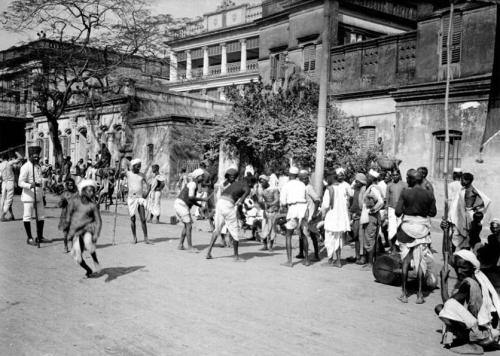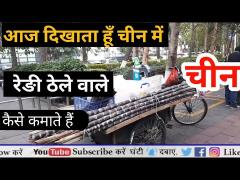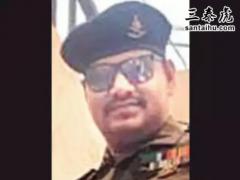quora: 英国殖民统治下的印度是什么样子?印度人对此感激还是仇恨?
What was life like in British India?英国殖民统治下的印度是什么样子?印度人对此感激还是仇恨?quora评论翻译:Ashutosh MehndirattaShort
What was life like in British India?
英国殖民统治下的印度是什么样子?印度人对此感激还是仇恨?
quora评论翻译:
Ashutosh Mehndiratta
Short Answer first -
The term ‘BritishIndia’ can broadly cover a long period of 350years, starting from the early 1600s when East India Company ships landed oncoastal India, until 1947. However, I have covered the 90 year period call the ‘British Raj’ from 1857–1947.
They were the best of times - This period witnessed thecreation and explosive growth in Infrastructure that came to define modernIndia (and Pakistan, Bangladesh) - Major Urban Centers, Hill Stations,Cantonments, Railroads, Major Highways, Bridges, Communication system (Post,Telegraph, Telecom), Irrigation system (Canals), Legal system, MajorUniversities and Colleges, Institutions, Archaeological Department, Politicalsystem, Bureaucracy, Armed forces, Police forces, and even some of the largestBusiness and Industrial Groups. There prevailed an air of intellectualcuriosity, and many bright people and ideas from Europe flowed into India. Thegreat Middle Class of India which numbers around 300 million today has roots inthis period. People could own land or transfer ownership while being protectedby law. First time in thousands of years, the lowest castes got an opportunityto improve their lot and were covered by law rather than customs. Lastly, Indiamanaged to escape from the clutches of a foreign power after hundreds of years.
They were the worst of times - OTOH this period witnessedthe most savage massacre of Indian rebels at the hands of the British after the1857 Rebellion was suppressed. Over a 100,000 were butchered, many blowndirectly from the cannons. In 1919, General Reginald Dyer ordered his troops tofire on a peaceful demonstration that left over 1,000 dead. The Britishintroduced Indenture system which was sort of Debt Bondage under which theysent 3.5 million Indian laborers to far away colonies like Mauritius, Guyana,Trinidad, Jamaica, Fiji, etc. Around 200,000 Indian soldiers died in the 2World Wars fighting for the British Indian Army. The Partition in 1947 lead to thelargest population migration in the human history with 15 million peoplegetting uprooted and anywhere from 200,000 to 2 million killed in riots. Therewas widespread discrimination against Indians, including the elite Indians, andmingling with the natives was strongly discouraged. Though the caste divide hasbeen ingrained in the subcontinent for thousands of years, the British ruleformalized and accentuated the divide. However, the most shocking part of thisperiod was the reckless management that was a major cause of several Faminesand lead to anywhere from 30 million to 50 million people dying of starvationor subsequent epidemic.
So how was life in this 90 year period? It depended on whoyou were. If you were one of the top ranking British officials or one of the1,000 odd British Civil servants, you literally lived like a king. Theremainder of British officials, soldiers, businessmen lived a very comfortablelife too as a superior. The rulers of the Princely states lived luxurious livestoo, some of them living like Sheikhs of the Middle East. The minority eliteIndians who got access to Western education and worked closely with the Britishlived a life full of opportunities too. Then there was the newly emergingMiddle Class comprising of thousands of Zamindars and Jagirdars, Moneylenders,Government Clerks, Army men, Railway employees, Supervisors, Engineers,Lawyers, Academics, Printers, small businessmen catering to the British, whowere living in urban centers lived reasonably comfortable lives. However, thebottom 90% Indians or more were tied to agriculture, toiled in the fields,often looking up towards the sky for rains, worrying about debt, the villagemoneylender, and worst case starvation and disease.首先一个简短的回答。
“英属印度”一词可以涵盖长达350年的时间。上到17世纪初东印度公司的船只在印度沿海登陆开始,下到1947年。然而,我已经包括了1857-1947年长达90年的“英国统治”。那段时间是印度最好的时期,这一时期见证了建设和爆炸性增长的基础设施。这些建设奠定了现代印度和巴基斯坦,孟加拉国的主要城市中心,营地,铁路,主要公路、桥梁、通讯系统(邮政、电报、电信),灌溉系统(运河),法律体系,主要的大学和学院,机构,考古部门、政治制度,官僚、军队、警察、甚至一些最大的商业和工业集团的基础。
那里洋溢着一种求知欲的气氛,许多聪明的人和想法从欧洲流入印度。今天,印度的中产阶级大约有三亿人,这一时期已经形成了中产阶级的雏形。在法律保护下,人们可以拥有土地或转让所有权。几千年来,最低的种姓第一次有机会改善自己的命运,并受到法律而不是习俗的保护。最后,在数百年之后,印度成功地摆脱了外国势力的控制。
Aditya Thimmaiah
Depended on where you lived . If you were in a princelystate governed by an excellent ruler then you probably had the best life . MyGreat Grandfather was the Superintendent of police under the princely state ofMysore . Mysore was arguably one of the best governed kingdoms in the world atthat time . They pretty much brought everything to India
1. First Hydro-electric project
2. Women’srights and their voting rights
3. Women’seducation
4. Endowments and allotment of land to IISc
5. Definitely , less corruption
6. Patronage to art and literature (We barely see thisanymore)
there are many more but for that you can look forachievements of wodeyars.
I know this may not be the intention of the question but ifyour trying to relive the past glory ,don’t . What’sdone is done , India was no doubt a great civilization before the Britishoccupation .
Whatever I heard about my great grandfather’s time was from my grandfather since mygreat grandfather was killed in Issur four days after his enlistment along withan amaldar when they went to collect tax , he was off duty and went as afriend. This incident later lead to the Issur rebellion and subsequentretaliation .Issur is a village in Shimogga district which became the firstvillage in modern day India to declare itself independent and part of theSovereign Republic of India(Which didn’texist back then). People fought hard for independence and we got it . Now, letsfocus on making that fight worthwhile .这取决于你住的地方。如果你处于一个由一位杰出的统治者统治的贵族王国,那么你的生活可能是最美好的。我的曾祖父是迈索尔王子国的警察局长。迈索尔可以说是当时世界上管理最好的王国之一。他们几乎把一切都带到了印度
1、第一个水电项目
2、妇女的权利和投票权
3、女性教育
4、土地的捐赠和分配。
5、当然,更少的腐败
6、对艺术和文学的赞助(我们已经很少看到这个了)还有很多,你可以自己寻找这位国王的成就。我知道这可能不是问题的本意,但如果你试图重温过去的辉煌,那就算了。所做的一切都已完成,在英国占领之前,印度无疑是一个伟大的文明。
关于我曾祖父的时代,我听说的所有故事,都是来自我祖父。因为我的曾祖父在入伍四天后被杀害了。当时他们去收税,本来他已经下班,但是他为朋友去顶了缸。这一事件后来导致了叛乱和随后的报复。Issur是位于shimogga区的一个村庄,它成为了现代印度第一个宣布独立的村庄,也是印度主权共和国的一部分(当时还不存在)。人民为独立而奋斗,我们后来终于得到了独立。但现在,让我们集中精力,使这场战斗变得有价值。
MFK
My near relation great grandmother is still alive. She livesin a village near pratapgarh uttar pradesh. She is 100+ and recently lost hisson who was 80+ years old. She still posses sound listening and speaking power.She has many memories of meeting british people like police officers,publicservants who she remember to be very humane, sensitive and serious in duty. Law and order was a serious affair asnone could get away easily. In general people were very respectful and hindusand muslims were living side by side. Cities and countryside were much cleanerand much less NOISIER. Revolutionaries of today were law breakers at that timeand people were scared of their children getting into politics and movements.World War was going on and army was a major employement avenue. These are someof the things i remember heard from her.我的曾祖母还活着。她住在普拉塔普加尔附近的一个村庄。她100多岁了,最近失去了80多岁的儿子。她仍然拥有听和说的能力。她有很多关于英国人的记忆,比如警察、公职人员,她记得他们在工作中很有人情味、敏感、认真。
法律和秩序是一件庄严的事情,谁也逃不掉。一般来说,人们都很尊重法律,印度教徒和穆斯林都住在一起。城市和乡村比现在要干净得多,噪音也少得多。今天的革命者是当时的违法者,人们害怕他们的孩子卷入政治和运动。那时候,世界大战正在进行,军队是主要的就业途径。这些是我记得从她那里听到的一些事情。
Jim Coleman
For whom?
For the European traders and business people, India providedan opportunity to make a living. Many Scots took that opportunity since therewere fewer opportunities in Scotland. The trade-off was that they often livedin isolation, far from their own compatriots (think of the tea planters) anddied early. The graveyards of India are full of people whose lives were cutshort at an early age by disease.
For the Indian peasant, life continued as had always done,and still does: a life of grinding poverty. Few would have known or cared thatthey were being governed by the British.
For the Indian nationalist, it was a time of politicalstruggle. They would have felt the satisfaction of commiting their lives to anoble cause, and there would have been a feeling of excitement and fear of theconsequences.
For the ICS officer, life was often rewarding. 20 year oldswent out to govern huge territories, administering justice, and collectingtaxes. They too often had to spend months away from their fellow Britons, andmust have felt lonely at times, but they had the consolation that they belongedto the elite (‘the heavenborn’ as they were called), and were greatlyrespected for their moral probity and language skills. They devoted theirworking lives in what they considered to be in the service of the people, butthey kept themselves apart socially. as in the UK on military bases: theofficers live separately from the other ranks. You mustn’t socialise with thepeople you giveorders to.
For the British wives, they were often bored, and had tospend months alone as their menfolk went off to run their businesses orpolitical duties. Gossiping and affairs were common, especially in the hillstations where they felt they could ‘lettheir hair down’ away from thecritical eyes of the Indian population.
For the British soldiers, life too was often boring, exceptnow and again where there was the excitement of going to war along thenorth-west and north-east frontiers. Their status was low (just above that ofthe Indian). They were committed to their soldiering for many years.
For the aspiring Indiajn middle-classes wanting to get tothe top, there would have been frustration that the top jobs were generallyreserved for the British. This was changing in the final years of the Raj, and moreof these senior positions were opened up to them, particularly in the legalprofession. And Indian businessmen were free to make themselves millionaires.
What next? Oh yes, workers and lower and middle managementlevels, did their jobs as per usual. My own father-in-law was a post master inKalimpong, Darjeeling, Gangtok and Tibet, and respected the British he workedwith and for. A private school owner I met a few years ago modelled his schoolon the British schools he was familiar with.
For the Indian jawan, the army offered reasonable and stablesalaries and entitlements. To the frustration of the nationalist, most saw itas a good job and were uninyterested in nationalist ppolitics.
Many urbanIndians would have come across British racistattitudes. Not being allowed in a train carriage, or into a British club, or totravel among certain roads reserved for the British etc. would have hurt andthese experiences were no doubt embittering, a feeling that would have fuellednationalist feelings.
The British were fearful, especially after the sepoy revoltin 1857, and kept themselves apart in their own ‘lines’.They did not mix socially with Indians, even if they worked with them. Thiswould have caused resentment among the Indians.
The you have the police. No problem if you are dealing withcriminals, but it must have been very problematic being an Indian policemanduring the 1930s and 40s. Many must have been conflicted, having to deal withdemonstrations by people whose views they may have symapthised with. TheBritish officers must have felt pretty nervous about the loyalty of their men.
Life for the British was hierarchical, with social statusmirroring the Hindu caste system in its rigidity and formality. Large amountsof time were spent in seating people according to their rank at official dinnerparties! and if a.yone was seen to be mixing with the local people, they wouldbe ostracised. I doubt any of us present day Britons could tolerate livingunder such a regime.
For the outcastes, British rule was a liberation. For thefirst time they were offered opportunities to get an education.
And so on and so forth. No doubt others can identify morecategories to talk about.对于谁来说?
对于欧洲的商贩们来说,印度提供了一个谋生的机会。由于苏格兰的机会较少,许多苏格兰人抓住了这个机会。他们常常生活在与世隔绝的环境中,远离自己的同胞(想想茶农们),过早地死去。印度的墓地里到处都是早年因疾病而死亡的人。
对印度农民来说,生活一如既往,现在依然如此:极度贫困。几乎没有人知道或关心他们是由英国人统治的。
对印度民族主义者来说,这是一个政治斗争的时期。他们会感到把自己的生命奉献给一项有满足感崇高事业,而且会有一种兴奋感和对不达后果的恐惧。对ICS官员来说,生活常常是值得的。20岁的孩子去管理庞大的领土,管理司法,收税。他们常常不得不与英国同胞分开几个月,有时肯定会感到孤独,但他们感到安慰的是,他们属于精英阶层(他们被称为“出生在天堂的人”),他们的道德正直和语言技能受到了极大的尊重。他们把自己的工作生涯奉献给了他们认为是为人民服务的事业,但他们把自己与社会隔离开来。就像在英国的军事基地一样:军官们与其他军衔的人分开居住。你不应该和你下命令的人交往。
对于英国的妻子们来说,她们常常感到无聊,不得不独自度过几个月,因为她们的丈夫出去做生意或履行政治职责。闲谈和婚外情是很常见的,尤其是在那些,他们觉得可以让自己的头发从挑剔的印度人的眼睛里“垂下来”的小山上。
对英国士兵来说,生活也常常是枯燥乏味的,除了不时有在西北和东北边疆作战的刺激。他们的地位很低(略高于印度人)。他们还需要服役多年。
对于那些有抱负的印度中产阶级来说,如果他们想要登上顶峰,他们会感到很难,因为顶尖职位通常都是留给英国人的。这在统治的最后几年发生了变化,越来越多的高级职位向他们开放,尤其是在法律行业。印度商人可以自由地让自己成为百万富翁。
下一个是什么?哦,是的,工人们和中层管理人员,他们的工作和往常一样。我自己的岳父是一个在Kalimpong, Darjeeling, Gangtok的邮局主管,并且尊敬他工作中的英国人。我几年前认识的一个私立学校的老板,就是以他熟悉的英国学校为蓝本。
Himanshu Srivastava
A real life story from British India, as told by mygrandfather:
Once, during his school days, a teacher gave some homeworkfor the class to do and he didn't do it. The next day, at school, the teacherwas checking everyone's homework and punishing whoever had not done it. When mygrandfather's turn came, he said this:
Teacher: Show me your homework.
He: Sir, I've done it but forgot my notebook at home(thinking that he will be spared of punishment).
Teacher: Okay, go to your home, get it and show to me.
After an hour, when the teacher was taking junior levelclass, he called my grandfather there.
Teacher: Show me your homework.
He: Sorry Sir, I didn't do it.
The teacher, obviously got angry and took his cane to punishhim. My grandfather held his cane, saying that he should be punished in hisclass, not in front of the juniors.
During those days there used to be some kind of jury, whowere mostly British, in schools to discuss any such teacher-student arguments.The matter went to the jury and after hearing the matter, they agreed that ifteacher has to punish, it should be done in his class, and not in any otherclass.
This is one of the many interesting stories my grandfatherused to tell me.
This gives us lesson that even if we have made a mistake, itshould not stop us from raising our voice against something which we feel iswrong.一个真实的故事,来自英属印度,就像我祖父说的:
有一次,在他上学的时候,老师给全班同学做了一些作业,但他没有做。第二天,在学校,老师检查每个人的家庭作业,并惩罚那些没有做的人。轮到我祖父时老师:给我看看你的家庭作业。
他:先生,我做了,但是我把笔记本忘在家里了(以为他不会受到惩罚)。
老师:好吧,到你家去拿,给我看看。
一个小时后,当老师正在上初级课程时,他给我的祖父打电话。
老师:让我看看你的家庭作业。
他:对不起,先生,我没有做。老师显然很生气,拿起手杖来惩罚他。我爷爷总是拄着拐杖,说他当时应该在他的班上受到惩罚,而不是在低年级学生面前丢脸。
在那些日子里,学校里总有一些以英国人为主的陪审团,来主持师生之间的争论。这件事交给了陪审团,他们听了这件事后同意,如果老师要处罚的话,应该在他的班上进行,而不是在其他班级。
这是我祖父常给我讲的许多有趣故事之一。
这给我们的教训是,即使我们犯了错误,也不应该阻止我们对我们认为是错误的事情而发声。Anonymous
I asked this question to my paternal grandfather and fromwhat I understood, life was pretty good in big towns and cities as compared tolife in India post independence. My grandfather was born in what you could callan upper middle class family. My great-grandfather was an Accounts Officer inthe Military Accounts Department in the Indian Civil Services, equivalent to aCentral Group 'A' Civil-service today. My great-great-grandfather was a graintrader/merchant who had his own shop. They used to live in the city ofRawalpindi, Punjab now in Pakistan after the partition.
My grandfather said that life in those days was a lot betterthan post-independence. He said in particular that law and order in BritishIndia was respected and effectively enforced. Crime rates were also very low.It was the British Raj that brought modern amenities to India like the schoolsand universities, Railways, postal services, telegrams, electricity, canalirrigation systems, sewerage drainage, and water supply systems, etc.
My grandfather had done a small stint in the MilitaryAccounts Department himself as a clerk and had the opportunity to work with acouple of British officers and said that they were very congenial.
At the end of the the day, they were not exactly theruthless and mean white men that the Bollywood movies portray. They were justofficers posted in an overseas location.
I also had a chance to interact with my maternal grandmotherwho came from a Zamindar(land owner) background from the district of Dera GhaziKhan, Western Punjab now also in Pakistan. When I asked her about her life inthe village, she did not mention the interference of the British in the day today affairs. The Zamindars were the higher authorities in those days at thevillage level. The administration of the British in the villages was limited toa British District Officer/ Magistrate who enforced the law.
The movies probably exaggerate the relentless attitude ofthe British officers to bring out the patriotic element in the viewingaudience. In all probability, the violence must have been some form of lawenforcement.
However, this is just a view from the lives of two peopleand there could be different views. Also this view is geographically restrictedto the province of Punjab and maybe life was different elsewhere.
However, in all reality the population of the Britishofficers was so less that they probably did not go out looting and plunderingon the streets. Sure, the British Crown had policies of high taxation and ageneral attitude to deplete the resources of the colony, but I don't think itwas any different than the policies in the previous governments of the Princelystates.我问了我的祖父这个问题,根据我的理解,与独立后的印度相比,大城市的生活相当不错。
我祖父出生在中产阶级的上层家庭。我的曾祖父是印度文官部门军事会计部门的一名会计官员,相当于如今的中央集团“A级”文官。我的曾祖父是一个谷物商人,他有自己的商店。他们过去住在拉瓦尔品第,现在在巴基斯坦的旁遮普。
我祖父说那时候的生活比独立后的生活要好多了。他特别指出,英属印度的法律和秩序得到尊重和有效执行。犯罪率也很低。英国的统治给印度带来了现代的便利设施,如学校和大学、铁路、邮政服务、电报、电力、运河灌溉系统、下水道排水系统和供水系统等。
我祖父本人曾在军事财务部做过一段时间的职员,并有机会与一些英国军官共事,并说他们非常友好。
说到底,他们并不是宝莱坞电影中所描绘的那种冷酷、刻薄的白人。他们只是派驻海外的官员。我也有机会与我的外祖母交流,她来自地主家庭,来自西旁遮普的Dera Ghazi Khan地区,现在在巴基斯坦。当我问她在村里的生活时,她并没有提及英国人在日常事务中的干预。在那些日子里,地主们是村里的上层阶级。英国在乡村的管理仅限于执行法律的英国地区官员/地方法官。
这些电影可能夸大了英国军官在观众面前展示爱国主义元素的无情态度。很有可能,暴力一定是某种形式的执法。
然而,这只是两个人生活中的一种看法,可能会有不同的看法。此外,这种观点在地理上仅限于旁遮普省,或许其他地方的生活也有所不同。然而,事实上,英国军官的人数如此之少,以至于他们可能不会外出抢劫和在街上抢劫。当然,英国王室有着高税收的政策,和消耗殖民地资源的态度,但我认为这和前几届的君主制政服的政策没有什么不同。
Savant Pasha
Indian people were put in chains. They had to salute the British flag firstthing in the morning. Failing to do someant being flogged. At ever streetcorner gallows were erected. Everymorning those Indians who raised their voice asking for freedom would be hangedthere. The bodies would be leftdangling till sunset, when relatives after returning from chain gang work couldremove and give the body a funeral (they would be unchained for an hour toattend to it). British cops would goaround examining houses for valuables. They would confiscate anything of value found and toss them into a shipwaiting to depart to England, once its belly was full. Gandy started a Satyagraha refusing to eatthe porridge that was served in the evenings to Indians, demanding that he beunchained first. Other Indians joinedthis Satyagraha and the British were so overwhelmed with guilt that, on August14th 1947, British cops went around unchaining people and telling them thatthey were free. The next day all Britsboarded ships to England and Nehru unfurled the Indian flag. Ask my six year old son to tell you thestory of India's rule by the Brits and this is what you will hear. To the amusement of his mates and teachersat his school in England, where he attended for a year, this is what he narrated.Can't blame him for having such impressions about British rule. Movies, textbooks and other material thatdelve into the subject conspire to create such impressions in people'sminds.
Speaking to octogenarians and the few left around who havewitnessed first hand hardly corroborates anything tyrannical. If anything, a picture of orderlinessemerges. Child labor was almostinvisible in the provinces. Railwaystations were very clean. Crime rateswere lower. Food shortages were notunheard of particularly during the great war, but the whole country was notalways starving. Water was not abundantand people had to cue up to get their share. Employment was not hard to obtain. Brits could be seen around but it was not common for them to interferein local matters,unless there was something serious. They were too busy enjoying their privilegesor complaining about the warm weather. Things suggest segregation was in place.
What we seriously lack is a realistic depiction of thosetimes and conditions. Jingoistictendencies have done much harm in creating a very negative and falseportrayal. This is unnecessary. There is a lot of work that needs to be doneif we wish to clean this up and ensure an objective rendering of an importantchapter of Indian history emerges印度人被囚禁起来。他们不得不在早上首先向英国国旗行礼。不这样做意味着被鞭打。街角处竖立着绞架。每天早晨,那些要求自由的印度人都会被绞死在那里。尸体会被吊在半空,直到太阳落山,当亲戚们下班回来后,他们可以把尸体领走,为尸体举行葬礼(他们会被解开一个小时的锁链来照料尸体)。
英国警察会到处检查房子里的贵重物品。他们会没收发现的任何有价值的东西,然后把它们扔进一艘等待出发去英国的船,直到船舱填满。甘迪开始了一场萨提亚格拉哈(Satyagraha)的活动,他拒绝吃晚上供应给印度人的粥,要求先解开他的锁链。其他印度人也加入了萨蒂亚格拉哈,英国人充满了罪恶感,以至于1947年8月14日,英国警察四处搜捕并告诉人们,他们是自由的。
第二天,所有英国人登上开往英国的船只,尼赫鲁展开了印度国旗。让我六岁的儿子给你讲印度统治的故事,这是你会听到的内容。令他在英国的学校里的同学和老师们感到好笑的是,他在那里读了一年书,这就是他的叙述。不能怪他对英国统治有这样的印象。电影、教科书和其他深入探讨这一主题的材料共同在人们的脑海中创造这样的印象。
对80多岁的老人和身边的少数亲眼目睹了这一切的人来说,几乎没有什么可以证实他们的残暴行为。如果说有什么不同的话,那就是一幅井然有序的画面。在各省,童工几乎是看不见的。火车站非常干净。犯罪率低。
粮食短缺并非闻所未闻,尤其是在大战争期间,但整个国家并非总是处于饥饿状态。水并不富裕,人们不得不争抢去得到他们的那份。找到工作并不难。英国人随处可见,但他们通常不干涉当地事务,除非事情很严重。他们忙于享受特权或抱怨炎热的天气。事情表明种族隔离是存在的。
我们严重缺乏的是对那些时代和条件的现实描述。沙文主义倾向造成了非常负面和错误的描述,其实没有必要。如果我们希望清理这一问题,并确保客观呈现印度历史的重要篇章,就需要做很多工作
Alex Johns
There ware Britishers who were corrupt and all Indian's werehonest.
Indians were poor but they were happy.
All Indian's were dreaming of free India where there wouldnot be any poverty, corruption, racism, untouchability.
All Indians wanted water, food, house in british rule, butthey never got it.
Winston Churchill told in British Parliament, if we willgive independence to India then India will be ruled by thief's and corruptleaders. How true he was......英国人是腐败的,而所有印度人都是诚实的。
印度人很穷,但他们很幸福。
所有印度人都梦想着自由的印度,那里不会有任何贫穷、腐败、种族歧视和贱民。
在英国统治下,所有的印度人都需要水、食物和房子,但他们从来没有得到过这些。但温斯顿·丘吉尔在英国议会上曾经说:如果我们将独立还给印度,那么印度将被盗贼和腐败的领导人统治。他说的真是太对了。。。。。
Anonymous
I asked my grandfather about this. He said life was rathernormal at that time. In fact a lot normal as compared to what is shown in themovies. He was a horse cart driver. He said that Britishers were rathergenerous to give a lot in tips and treated him with respect. Just a littlerudeness sometimes. He very rarely saw the brutalities that are evident in alot of stories that we have heard.
In reality, I don't know how frequently those thingshappened. He may just have been lucky to never see or experience them.我问过我祖父这个问题。他说那时的生活很正常。事实上,和电影里的相比,很正常。他是一名马车司机。他说英国人慷慨地给他很多小费,并且对他很尊重。只是偶尔有点粗鲁。他很少看到我们现在所听到的许多故事中的残酷经历。
事实上,我不知道这些事情发生的频率。可能他只是幸运地从未见过或经历过它们。
(译者: Rainslw 来源:龙腾网)
版权声明
我们致力于传递世界各地老百姓最真实、最直接、最详尽的对中国的看法
【版权与免责声明】如发现内容存在版权问题,烦请提供相关信息发邮件,
我们将及时沟通与处理。本站内容除非来源注明五毛网,否则均为网友转载,涉及言论、版权与本站无关。
本文仅代表作者观点,不代表本站立场。
本文来自网络,如有侵权及时联系本网站。
-
1
चाइना में रेडी और ठेले Local shops in china || L...
- 2
- 3
- 4
- 5
- 6
- 7
- 8
- 9
- 10
-
1
चाइना में रेडी और ठेले Local shops in china || L...
- 2
- 3
- 4
- 5
- 6
- 7
- 8
- 9
- 10












